
Spotlight on Women's History Month
Helen Eugenie Anderson
-
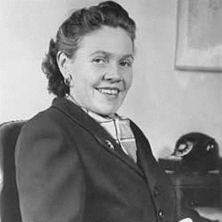
- The first American woman to sign a treaty, with the Treaty of Commerce and Friendship with Denmark, which she drafted
- Appointed by President Kennedy to be Ambassador to Bulgaria.
We celebrate this spotlight with The School of Diplomacy and International Relations.
For more information about Helen Eugenie Anderson, click here.
Sirimavo Bandaranaike
-
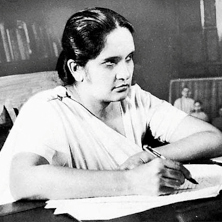
- Served three terms: 1960–1965, 1970–1977 and 1994–2000
- Her daughter, Chandrika Kumaratunga became Sri Lanka’s first woman president from 1994 to 2005.
We celebrate this spotlight with The School of Diplomacy and International Relations.
Joyce Mitchell Cook
-
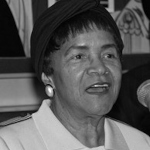
- She was one of the first philosophical bioethicists; her research focused on questions surrounding informed consent and human experimentation.
- Dr. Cook also worked in Washington, D.C., as a public philosopher and was a speech writer for President Jimmy Carter.
We celebrate this spotlight with The College of Arts and Sciences.
Robin Cunningham
-
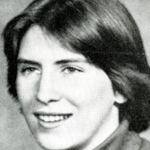
- The first singles player on the women’s tennis team and ultimately the first female student-athlete to have her uniform number (32) retired and to be inducted into the Seton Hall Athletics Hall of Fame.
- While a team member, Seton Hall compiled a 60-32 record and won EAIAW titles in 1977 and 1978.
- In tennis, she held a 52-15 record in No. 1 singles and posted a third-place finish overall in the NJAIAW championship in her senior year.
- Served as Seton Hall Athletics’ Director of Academic Support Services for nearly 20 years.
We celebrate this WHM spotlight with The Department of Athletics.
For more information on Women Athletes, visit the She Can website.
Natalie Diaz
-
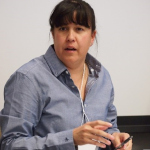
- Born in the Fort Mojave Indian Village in Needles, California, Diaz is Mojave and an enrolled member of the Gila River Indian community
- Her debut collection, When My Brother was an Aztec, (2012) earned her an American Book Award.
We celebrate this spotlight with The College of Education and Human Services.
Marietta Kies
-
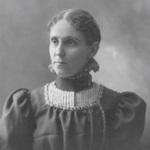
- In her research, she developed an account of altruism that some have argued anticipated contemporary theories of an ethics of care.
We celebrate this spotlight with The College of Arts and Sciences.
Suzanne Langer
-
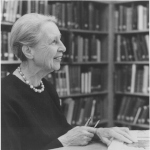
- Developed a theory of symbolism reaching well beyond Philosophy to inform Religion, the Arts, and Rhetorical Studies.
We celebrate this WHM spotlight with The College of Communication and the Arts.
For more information about Suzanne Langer, click here.
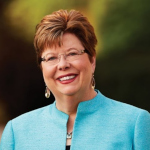

- Former Interim President of Seton Hall University
- Earned her B.A., M.A., and Ph.D. at Seton Hall
- President Emerita
Patsy Mink
- As a leading advocate for women’s rights and education, Patsy
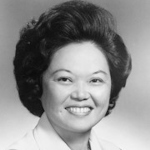
- Born in Hawaii in 1927 Mink was the first woman of color elected to Congress.
- Mink played a crucial role in the writing and passage of Title IX, which mandated equal treatment for men and women in education. Title IX dramatically increased the number of women attending college and opened the door for millions of more women to participate in high school and college sports.
- Mink also introduced the Women’s Educational Equity Act of 1974, which provided funds to promote gender equity in schools and increase education and job opportunities for women.
We celebrate this spotlight with The College of Education and Human Services.
For more information about Patsy Mink, click here
Dr. Ellen Ochoa
- American engineer and former astronaut
- First Hispanic woman to go to space when she served on a nine-day mission aboard the Space Shuttle Discovery in 1993
- First Hispanic director and the second female director of Johnson Space Center.
Alice Freeman Palmer
-
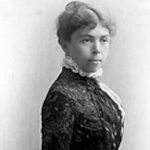
- Palmer became the president of Wellesley College in Massachusetts and the first female president of a nationally known college.
- She launched the American Association of University Women (AAUW ), a non-profit that advances equity for women and girls through advocacy, education, and research.
We celebrate this spotlight with The College of Education and Human Services.
Inez Bevery Prosser
-
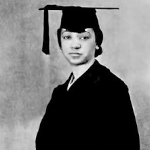
- One of the first psychologists to argue that racism had a damaging effect on the psychology of African American children. Her dissertation “The Non-Academic Development of Negro Children in Mixed and Segregated Schools”was used in the debates surrounding Brown vs. Board of Education in 1954.
Her research evaluated the effects of racial inequality and racism on the development of Black children’s identity and mental health.
Eleanor Roosevelt
-
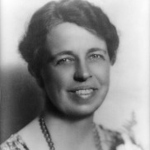
- As a U.S. delegate to the new United Nations Eleanor Roosevelt was the first Chairperson of the Commission on Human Rights and Chairperson of the drafting committee for the Universal Declaration of Human Rights
- Longest-serving first lady of the United States. Mrs. Roosevelt became the first, First Lady to hold her own press conference. To allot equal time to women who were at that time barred from presidential press conferences, she allowed only female reporters to attend.
We celebrate this spotlight with The School of Diplomacy and International Relations.
For more information about Eleanor Roosevelt, click here.
Sonia Sotomayer
- First Hispanic (Puerto Rican) and the third woman to serve on the U.S. Supreme Court
- As a federal trial court judge Sotomayor saved Major League Baseball from a 1995 strike
- Co-chaired the Latin American and Native American Students Association and worked as an editor for the Yale Law Journal.
Alice Walker
-

- First black woman to win the Pulitzer Prize in Fiction and the National Book Award for her epistolary novel, The Color Purple, in 1983.
- Her works include seven novels, four collections of short stories, four children’s books, and volumes of essays and poetry.
- Walker coined the term womanist in her collection, In Search of Our Mothers' Gardens, to mean "a black feminist or feminist of color."
We celebrate this spotlight with The College of Education and Human Services.
Angela Williams
-
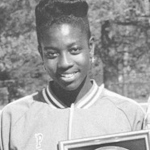
- Finished fifth in the 100 meters in the NCAA Outdoor Championship for her second All-America distinction. School record-holder in the outdoor 100 meters (11.22) and in the indoor 300 meters (52.11)
- Member of the record-holding indoor sprint medley relay team.
- Four-time BIG EAST Champion.
- Competed in the 1984 and 1988 Summer Olympics for her native Trinidad
We celebrate this WHM spotlight with The Department of Athletics.
For more information about Angela Williams, click here.

